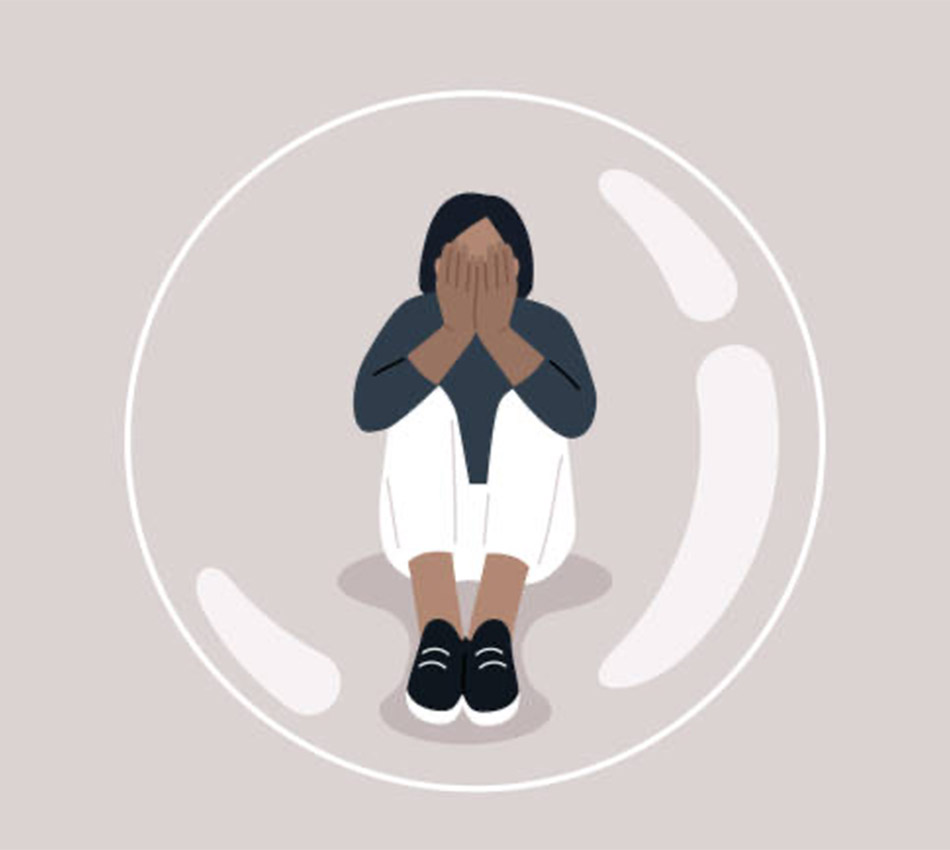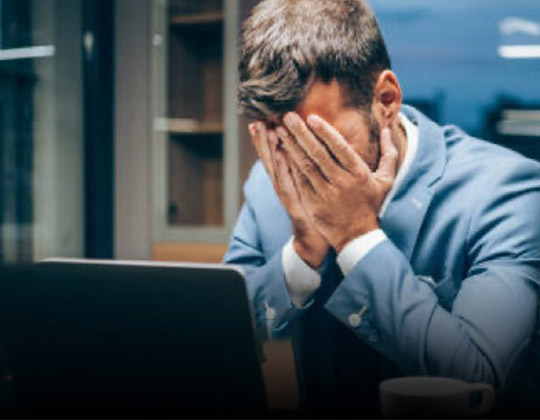
Panic disorder affects up to 5% of people worldwide at some point in their lives.
What is a panic attack?
A panic attack is an intense surge of fear or anxiety that comes on suddenly, often without warning. It typically lasts several minutes and can trigger overwhelming physical symptoms such as chest pain, a racing heartbeat, shortness of breath, dizziness, or sweating. In that moment, it can feel like something is seriously wrong — as though you’re losing control or in immediate danger, even when no real threat is present.
This acute fear response can also lead to a flight, freeze, or submission reaction, where the body prepares to escape, shuts down, or yields under perceived threat. While a single panic attack can be deeply unsettling, repeated episodes may point to panic disorder — a condition that, left untreated, can disrupt daily life and lead to avoidance behaviours. The good news: with the right treatment and support, recovery is not only possible, but expected.
Signs of a panic attack
- Sudden surge of intense fear
- Rapid heart rate or palpitations
- Shortness of breath
- Chest pain or discomfort
- Dizziness or light-headedness
- Sweating or chills
- Trembling or shaking
- Nausea or stomach distress
- Feeling detached from reality
- Fear of losing control or "going crazy"
- Fear of dying
Causes and triggers
- Genetic predisposition
- Chronic stress or anxiety
- Major life changes
- Traumatic experiences
- Certain medical conditions
- Caffeine, alcohol, or substance use
- Overactive fight-or-flight response
Understanding these factors can help individuals and their therapists work together to manage and reduce the frequency of attacks.
Benefits of Panic Disorder Counselling
Relief from overwhelming symptoms
Learn strategies to calm your body and mind during panic attacks.
Understand your triggers
Identify patterns and situations that may be contributing to your panic.
Build daily coping skills
Develop practical tools to manage anxiety outside of therapy sessions.
Regain your confidence
Reduce fear of future attacks and reclaim your routine.
Improve overall well-being
Experience greater emotional balance and peace of mind.
Treatment options for panic attacks
At Incontact, we take an integrated approach to panic attack treatment — combining proven therapies with personalised lifestyle guidance to support lasting recovery.
Cognitive Behavioural Therapy (CBT)
CBT is one of the most effective and time-efficient treatments for panic disorder. It helps you recognise distorted thought patterns and the connections between your fears and triggering situations. With CBT, you'll learn to respond differently to anxiety-provoking situations, building healthier thinking habits and emotional responses. Our goal is to equip you with practical techniques that you can use in real life — to manage your emotions, your behaviours, and your reactions — even in the middle of a panic episode.
Eye Movement Desensitisation and Reprocessing (EMDR)
EMDR is a powerful therapy, especially for individuals whose panic attacks are linked to past trauma or overwhelming experiences. By helping the brain process distressing memories in a safe, guided way, EMDR reduces the emotional charge associated with those memories. At Incontact, our trained therapists integrate EMDR as part of a broader treatment plan when it can support your recovery.
Mindfulness, relaxation, and health coaching
Techniques like deep breathing, mindfulness meditation, and progressive muscle relaxation can help you stay grounded and manage the physical symptoms of panic. Alongside these, we guide you in building supportive daily habits — from improving your sleep and nutrition to establishing regular movement routines. These holistic changes not only complement your therapy but also strengthen your overall resilience against anxiety and stress.
At Incontact, we believe that no two journeys are alike. That’s why we design a personalised treatment plan for you, combining the right therapeutic approaches with practical lifestyle support to help you make sustainable progress.

When to seek help
If panic attacks are happening frequently, are unpredictable, or are beginning to interfere with your daily life, it’s time to seek support.
You might also consider professional help if:
- You’re avoiding places or situations for fear of triggering an attack.
- You feel persistent worry about when the next attack might occur.
- Physical symptoms of panic are causing distress even outside of attacks.
- You want to understand and manage your anxiety better.
The earlier you reach out, the sooner you can start feeling relief.
FAQ
A panic attack is a sudden, intense wave of fear or anxiety that comes on quickly and can trigger overwhelming physical symptoms, such as chest pain, racing heartbeat, and shortness of breath. Unlike general anxiety, which tends to build gradually over time, a panic attack occurs suddenly and without clear warning. The intensity and physical symptoms often make it feel life-threatening, even if there is no actual danger.
Panic disorder is a condition in which a person experiences recurring and unexpected panic attacks. These attacks can become frequent and severely disruptive, leading individuals to avoid certain situations or places for fear of triggering another attack. If left untreated, panic disorder can significantly impact one's quality of life.
The exact cause of panic attacks and panic disorder is not fully understood, but several factors may contribute, including genetics, chronic stress, trauma, major life changes, and certain medical conditions. Overuse of caffeine, alcohol, or substances can also trigger attacks. An overactive fight-or-flight response is another key factor.
At Incontact, we offer an integrated approach to treating panic attacks. This includes Cognitive Behavioral Therapy (CBT), Eye Movement Desensitisation and Reprocessing (EMDR), and mindfulness-based techniques like deep breathing and progressive muscle relaxation. We also provide holistic lifestyle coaching to support your emotional well-being and resilience.
CBT is a time-efficient and highly effective therapy for panic disorder. It helps you identify and challenge distorted thought patterns related to your fears and panic triggers. CBT teaches you how to respond to anxiety-provoking situations in healthier ways, equipping you with practical skills to manage panic attacks when they occur.
EMDR is a therapeutic approach that helps individuals process distressing memories or traumatic experiences that may be linked to their panic attacks. By reducing the emotional charge of these memories, EMDR can make it easier to manage anxiety and panic symptoms. It's particularly helpful for people whose attacks are triggered by past trauma.
Yes, panic attacks can be treated effectively with therapy, especially Cognitive Behavioral Therapy (CBT) and EMDR. However, in some cases, medication may be recommended to help manage symptoms. At Incontact, we take a personalized approach to treatment, collaborating with your psychiatrist, as needed to suit your unique needs and preferences.
In addition to therapy, a healthy lifestyle can significantly improve your resilience against panic attacks. Key habits include regular exercise, balanced nutrition, sufficient sleep, and mindfulness practices. Avoiding alcohol, caffeine, and other substances that may trigger anxiety is also important.
If your panic attacks are frequent, unpredictable, or starting to interfere with your daily life, it’s time to seek help. If you find yourself avoiding certain places or situations out of fear of triggering an attack, or if you feel anxious about when the next attack might occur, professional support can provide the relief you need.
During a panic attack, try not to resist the symptoms. Stay calm and focus on breathing deeply. Visualize a peaceful place or calming imagery to help ease your fear. The attack will eventually subside. Afterward, consider practicing relaxation techniques or engaging in mindfulness exercises to prevent future episodes.












